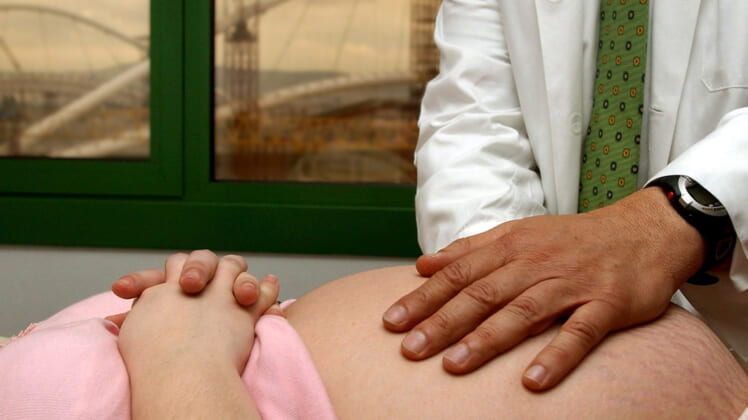
Twenty-five percent of all women carry the bacteria in their vagina and rectum and most women have no symptoms. A simple culture exam can tell if a woman has GBS, but a carrier will not test positive every time she has a culture done. If you are pregnant, be sure your doctor knows if you are a carrier. Being a carrier does not mean a woman has a group B strep infection.
Having numerous strep throat infections as a child or otherwise does not mean a women is more likely to be a carrier than a women who never had strep throat. But carriers are at a higher risk for giving their baby a GBS infection during birth, which can cause a multitude of problems for the baby.
The CDC cites group B strep as the most cause of life-threatening illness in newborns. After the mother’s water breaks, GBS can infect the baby and cause anything from meningitis (an inflammation of the lining of the brain), sepsis (a blood infection), pneumonia, rubella (a virus of the respiratory tract), spina bifida (a malformation of the spine), to death.
Frances Mitchem-Diago, 28, had a vaginal strep B infection a couple years ago. Her doctor gave her antibiotics and the infection cleared up. Her doctor never told her about her being a possible carrier, how threatening the bacteria is to newborns, or that she should be tested if she decides to have a child.
“No! He did not tell me that! He’s usually very thorough with me in his explanations of what’s going on with me,” said Mitchem-Diago.
Half of all babies affected with the disease develop strep B within the first week of life and most of them show signs of infection after only a few hours after birth, known as early onset. But the disease is very preventable. Pregnant women need only to get a dose of antibiotics intravenously during labor to change their odds from 1 in 100 of infecting their babies to 1 in 4000 (Dr. Gianopolous cites 1 in 1000 to be on the safe side).
Dr. Gianopolous warns women who are Group B carriers not to try to treat themselves with antibiotics unless they have an infection, however.
“There is no need to be treated, because in a few months it’ll be back,” said Dr. Gianopolous. “It’s not recommended to even give pregnant women antibiotics before their water breaks because it will come back. Using a lot of antibiotics is causing diseases to become resistant to the drugs, creating these super bugs. Right now Group B is very sensitive to penicillin, but there is some concern it will become resistant.”
For additional information on Group B streptococcus, see Preventing Group B Strep Disease at the Centers for Disease Control and Prevention.
